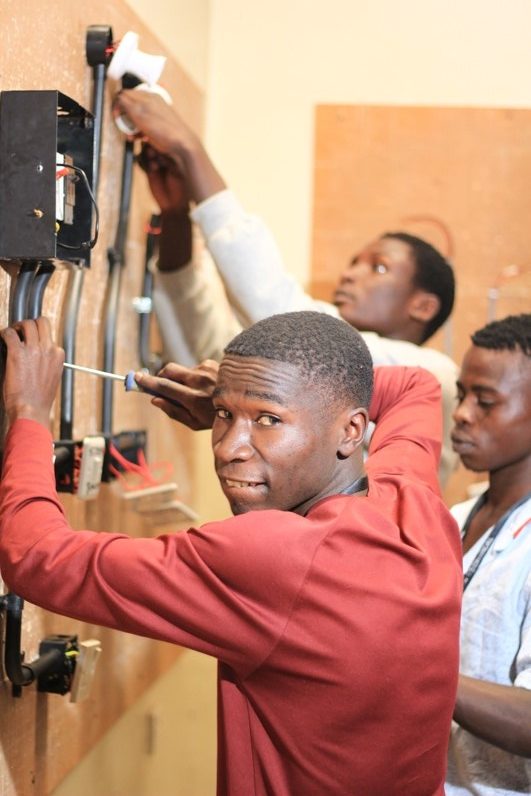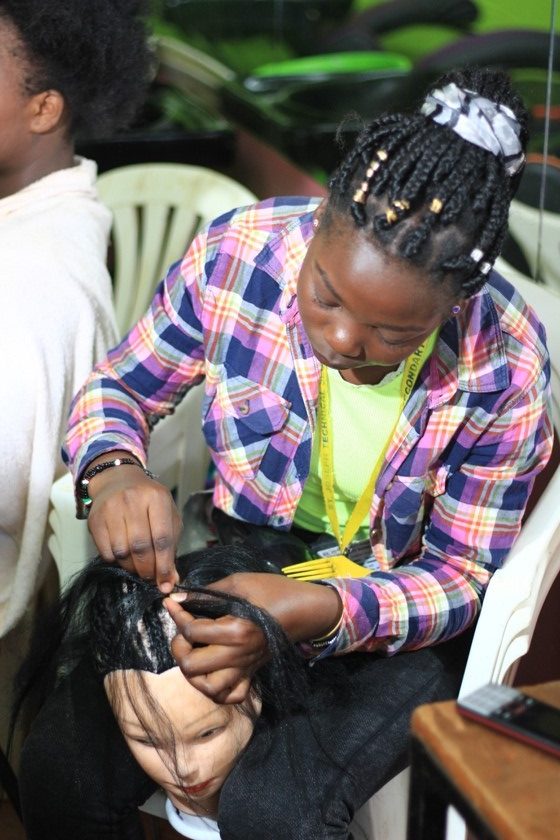Tucked away from the fast-paced and scenic Kenyan capital’s central business district is the sprawling slum of Kangemi, whose pavements are littered with waste. Oblivious of the choking stench, residents here go about their daily business of cooking by the roadside or outside their houses, selling charcoal or edibles in small food stalls.
However, in the middle of this downmarket informal settlement, which is home to more than 100,000 of Nairobi’s poorest people and where battle for survival is the name of the game, lies a glimpse of hope. Situated among the restless residents of Kangemi, a noble venture now caters for needs of the poor with a view to giving residents equal opportunities, demand for social justice and a dignified life.
Thanks to St. Joseph’s Parish Development Office, a programme of St. Joseph’s the Worker Catholic Church, which is one of the 112 parishes of the Catholic Archdiocese of Nairobi, residents of Kangemi now have realistic hopes for improved lives.
“The development office caters for the needs of children, the youth, single mothers, women subjected to abuse, the unemployed, unskilled, the sick, homeless and victims of female genital mutilation as well as patients of HIV/AIDS from this community,” explains Father Ponsiano Ngondwe, Head at St Joseph’s. The development office runs programmes in ensuring access to education and practical skills training for earning a decent income, provision of basic healthcare, HIV/AIDS prevention, treatment and care; and socio-economic development, as well as overall livelihoods support.
Having setup the church in Kangemi in 1987, and starting the technical school in 2015, St. Joseph’s Parish through the development office offers quality education and appropriate vocational technical skills training to youth from vulnerable families from the Kangemi informal settlement. The programme has so far been executed successfully – thanks to partnership with organizations such as KCDF that came in to support in the year 2018.
Through the Kibera Fund livelihoods programme, St. Joseph’s Parish received support from KCDF to upscale the training project that sought to empower vulnerable youth in Kangemi slums through technical skills training and entrepreneurship. Through the project, more than 100 beneficiaries continue to benefit from technical skills in embroidery, hair & beauty, fashion and design, electricals as well as computer skills.

Other than the KCDF support, the school relies on income from school fees which is charged at a subsidized amount due to the target population, scholarships from individuals, corporate donors and bursaries from the Government of Kenya. “Our development projects rely on support from both local and international donors and the Parish’s congregants,” adds Father Ponsiano Ngondwe.
The education model at St. Joseph’s Parish was informed by the environment’s high unemployment levels and drug & alcohol addiction, which are the effects of idleness and the young people’s quest for survival. The courses offered at the school include hairdressing, electrical installation, computers and fashion design, all designed to empower young women and men with basic skills.

“We encourage students joining the secondary school to enrol for technical courses as well, so that by the time they are through with their secondary education, they are equipped with skills to enable them fend for themselves as they transition to college or university or launch into society,” says Fr. Ponsiano.

The Catholic cleric appreciates that KCDF has come in handy to support the educational and training programme after submitting a proposal for the provision and equipping of the training centre with equipment for tailoring and sewing for the fashion and design class; and salon equipment and other hair necessities for the hairdressing class, thereby enabling effective delivery of courses on offer.

“The electric sewing machines have made it possible for us to saw hard garments like jeans jackets and seat covers which has helped us diversify and sell, something we were unable to do before,” says Anne Wairumu, the institute’s Fashion and Design instructor. The students are also performing better in sewing and dressmaking because they can now undertake practical lessons and examinations without hitches. “The quality of the students we are churning out has gone a notch higher because the machines have helped a great deal in enhancing the training,” confirms Fr. Ponsiano acknowledging KCDF’s partnership.
Additionally, the organization went through a capacity building skills training on how to fundraise locally. Through this local fundraising training under Change the Game Academy, the institution managed to understand the resource mobilisation effort required, the opportunities around them and how to execute a successful fundraising campaign. The Parish organized for a day music extravaganza event and invited Kangemi residents, targeting especially the youth who are the highest population, charging them a small fee all with the objective of fundraising for the youth technical skills training programme. This effort enabled the institution to raise a total sum of Kes.4 million ($40,000) from corporates, Parish members and residents of Kangemi community.
“KCDF has walked with us and this has accorded our beneficiaries the opportunity to be self-sufficient. Upon completion of their training course, our graduates are productive and marketable. And this is because they are well rounded in both theory and practical and have a recognized certification to match the skill,” boosts Fr. Ponsiano.
Besides provision of the training equipment to the development office, KCDF covers some of the operational costs needed for the teaching force by giving them a modest allowance, which serves as a motivation leading to improved performance for both teachers and learners.
Since inception of the technical school in 2015, the school has given skills to more than 376 students. Of these, 31 have been trained in electrical and solar skills, 52 in beauty and hairdressing; and 32 in fashion and design, all of them with the support of KCDF.
Admittedly, St. Joseph’s skills training programme has given the residents of Kangemi hope and its graduates a new lease of life. “They (graduates) don’t have to rely on casual work which can be inconsistent or go into prostitution and crime to make money as they used to. They can now use the skills earned to earn an honest living,” observes Fr. Ponsiano.